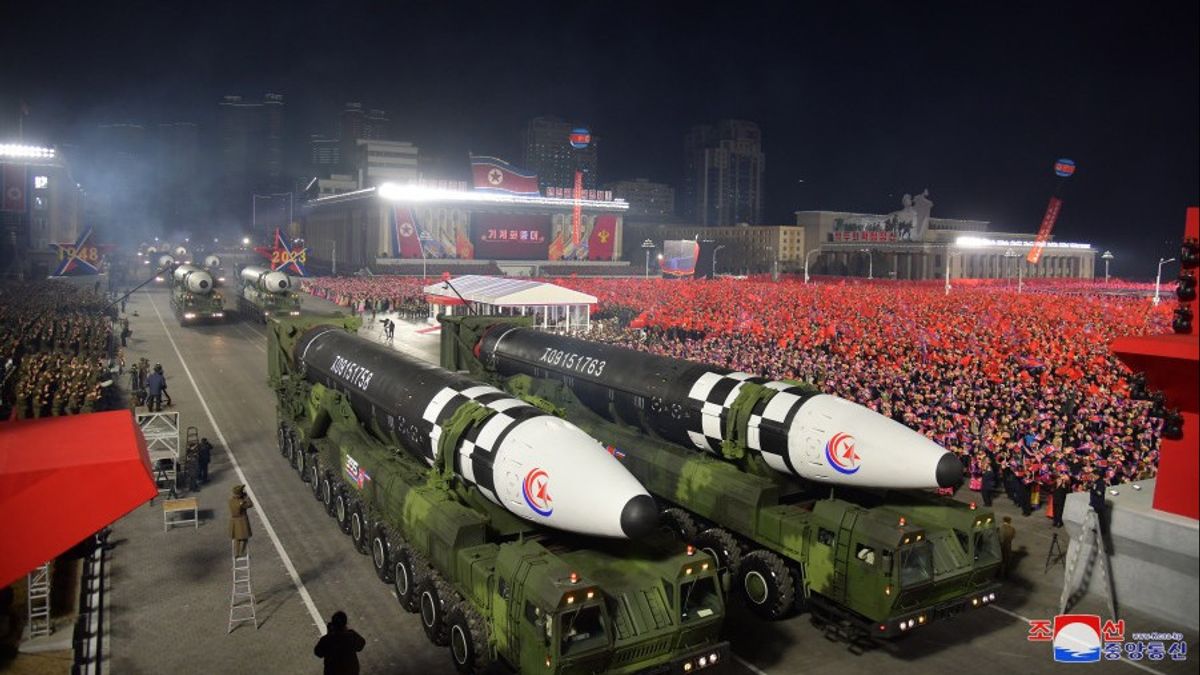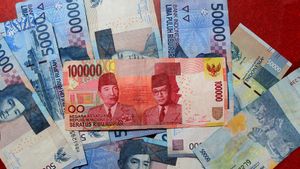JAKARTA - North Korea showcased dozens of intercontinental ballistic missiles (ICBMs) capable of carrying its large nuclear warheads, in a night military parade marking the 75th anniversary of the founding of the Korean People's Army, attended by Kim Jong-un and his wife Ri Sol-ju and their daughter Ju Ae.
Despite UN Security Council sanctions, North Korea's ballistic missile program is known to continue, with last year launching dozens of advanced missiles as well as being the highest record in a year.
"This time, Kim Jong Un allowed North Korea's tactical and long-range missile power to speak for itself," said Leif-Eric Easley, a professor from Ewha University in Seoul, South Korea.
"Mesan yang ingin dikirim Pyongyang secara internasional, menunjukkan kemampuannya untuk mencegah dan memaksa, kemungkinan akan datang dalam uji coba rudal berbahan bahan bahan dengan dan eksunan perangkat nuklir mini," sambungnya.
Image released by state media outlet KCNA from Wednesday night's parade showed as many as 11 Hwasong-17, North Korea's largest ICBM, which is thought to be able to strike almost anywhere in the world with a nuclear warhead.
Eleven missiles could be enough to overwhelm the current US missile defenses, said Ankit Panda of the US-based Carnegie Endowment for International Peace on Twitter.
"This cumulatively is more ICBM launchers than we've seen before at the North Korean parade," he said in a tweet.
The Hwasong-17 was first tested last year. Beside them at the parade was what some analysts said could be prototypes or new solid-fuel ICBM makets in tube launchers.
Developing a solid-fuel ICBM has long been seen as the country's main goal, as it can make its nuclear missile more difficult to identify and destroy during the conflict.
Separately, South Korea's Foreign Ministry criticized North Korea for holding the event, as it faces food crises and deteriorating economic difficulties.
"We urge North Korea to immediately stop the development of illegal nuclear and missile, and the reckless nuclear threat, immediately return to denuclearization negotiations," South Korean Foreign Ministry spokesman Lim Soo-suk said at a routine briefing.
North Korea says its missile program and nuclear weapons development are under its sovereign rights to defend itself, and are necessary because of hostile policies by the United States and its allies.
The English, Chinese, Japanese, Arabic, and French versions are automatically generated by the AI. So there may still be inaccuracies in translating, please always see Indonesian as our main language. (system supported by DigitalSiber.id)








